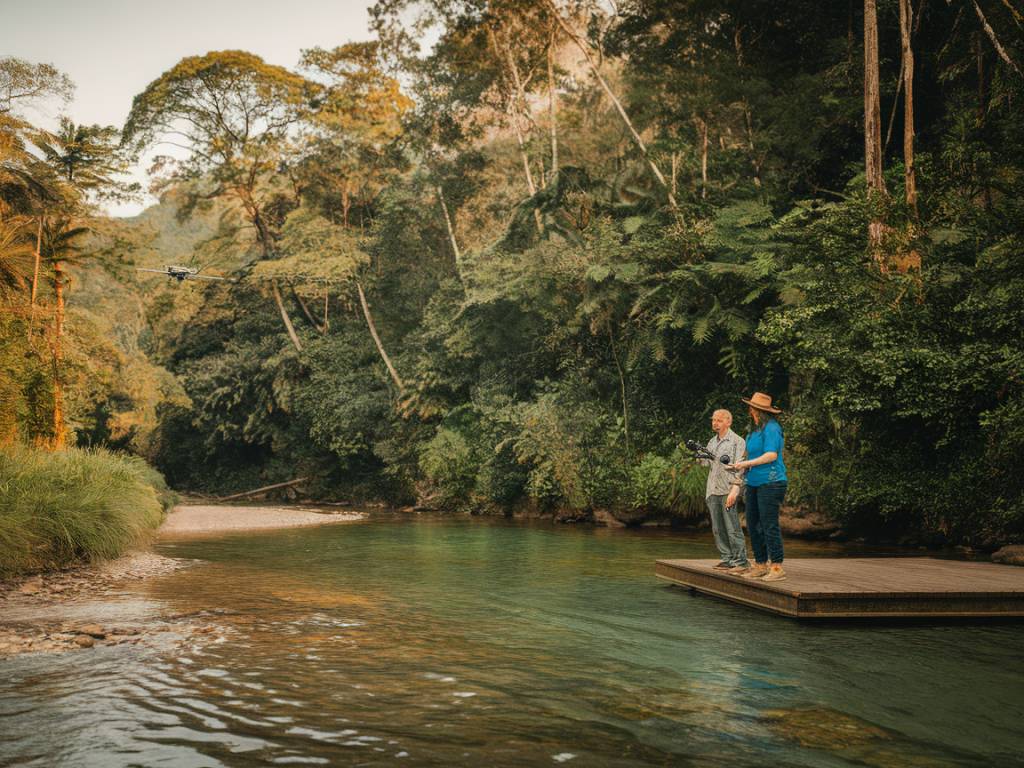In the heart of the lush Amazon rainforest, a small community named San Martín faces a dilemma that echoes a global conundrum: how do we conserve our critical ecosystems while addressing the needs of local populations? This question lies at the intersection of ethics and environmental conservation, an area fraught with both challenges and opportunities.
The Moral Mandate of Conservation
Conservation efforts have long been driven by a moral imperative to protect our planet’s biodiversity. It’s easy to argue for the preservation of iconic species like elephants and tigers, but what happens when protection measures affect human livelihoods? Communities like San Martín find themselves at a crossroads where conservation and survival seem at odds. Isn’t it ironic that the very people we depend on to steward our natural resources are often those who bear the brunt of conservation policies?
Human Needs vs. Environmental Goals
Consider the story of Lake Turkana in Kenya. Known as the world’s largest desert lake, it supports both a unique ecosystem and the livelihoods of indigenous communities reliant on fishing. Recent developments, including dam construction, promise economic growth but threaten the lake’s hydrology. Here, we witness the delicate balance between fostering human development and maintaining ecological integrity. How do we prioritize one over the other, or should we?
Finding Common Ground
Successful conservation models highlight the importance of community involvement. Take the example of Nepal’s community forest program, which has been effective in doubling the country’s forest cover while empowering local populations. By involving communities directly in conservation, we can shift the narrative from “man versus wild” to a more collaborative coexistence. Isn’t it time we rethink conservation as a shared journey rather than a conflict of interest?
Technological Solutions and Innovation
The quest for balance can also be aided by technology. Drones, satellite imagery, and artificial intelligence are increasingly employed to monitor wildlife and habitat changes with precision. In the case of anti-poaching efforts, these technologies have already made significant impacts. For instance, drones equipped with thermal cameras have successfully deterred illegal activities in game reserves. Can technology be the bridge that connects human needs with environmental stewardship?
Ethical Frameworks for Decision-Making
When grappling with ethical questions in conservation, frameworks like the IUCN’s « Human Rights in Conservation » provide guidance. These frameworks emphasize that conservation should not come at the expense of basic human rights. The challenge remains in operationalizing these frameworks in diverse contexts where economic pressures and ecological needs are deeply intertwined. Could a rights-based approach shape the future of conservation policies?
The Role of Policy and Governance
Robust policies and governance structures are crucial for ethical conservation. Governments must craft policies that integrate economic development with ecological health. For example, Costa Rica’s Payment for Ecosystem Services (PES) program has successfully encouraged landowners to protect forests, proving that economic incentives can align with conservation goals. Should other nations follow suit and develop similar integrative strategies?
Engaging the Global Community
Finally, conservation ethics must transcend local struggles and engage the global community. As Theo Marchand eloquently observes, the health of our global ecosystems is inextricably linked to local actions. Global partnerships and funding can provide the necessary support for innovative and sustainable conservation models to flourish. In the age of globalization, is not our shared responsibility the only viable path forward?
In essence, the ethics of conservation demand a harmonious balance between protecting the environment and meeting human needs. The pathways may be complex, but they offer exciting opportunities for new alliances and strategies that are both ethical and effective. As we move forward, let us embrace the challenge with the humility and creativity that the situation demands. After all, in conserving nature, we are invariably conserving ourselves.

